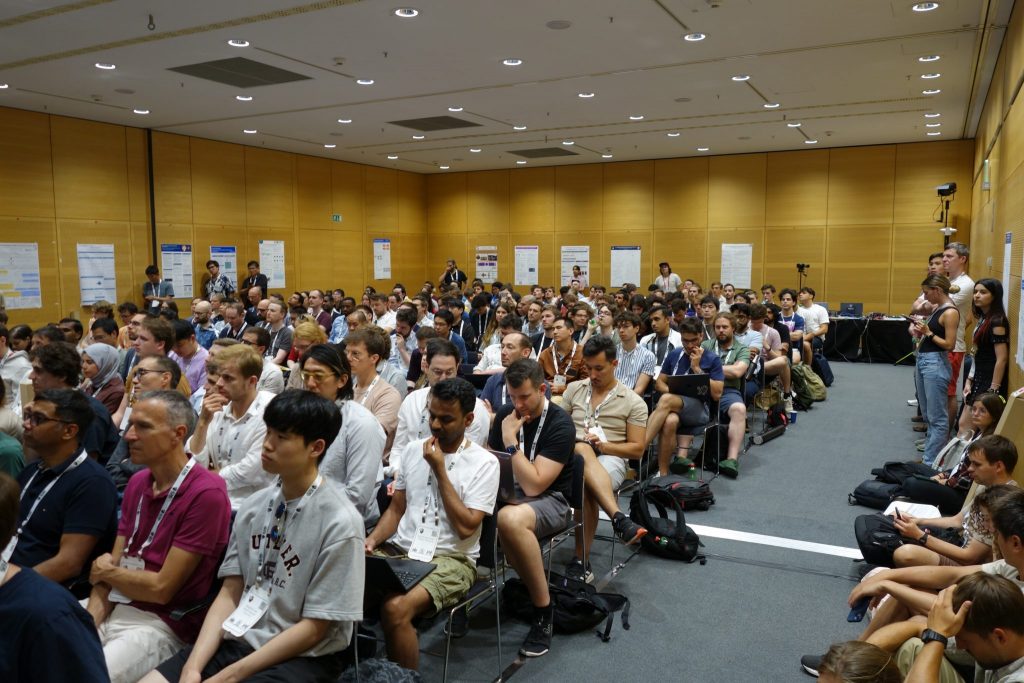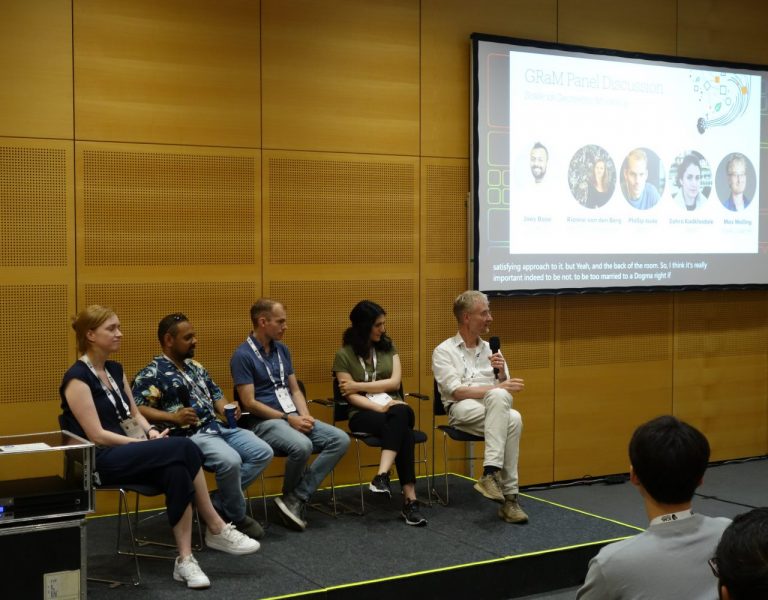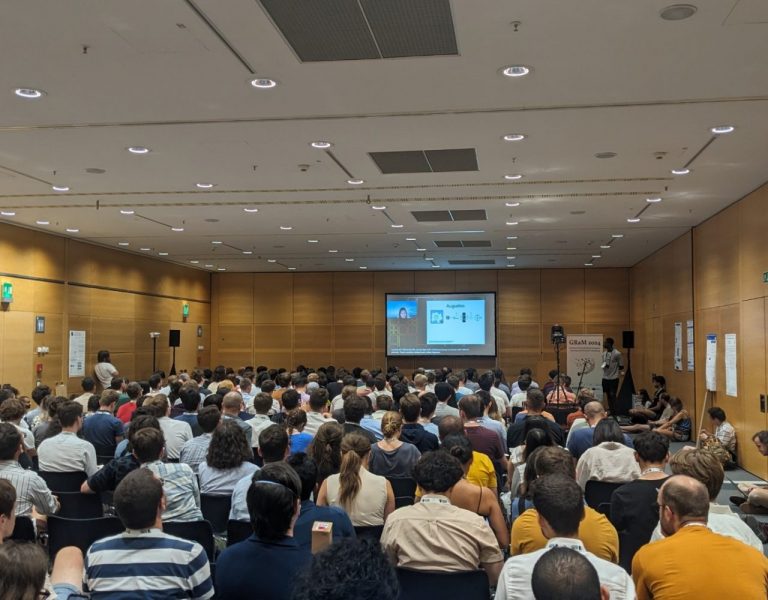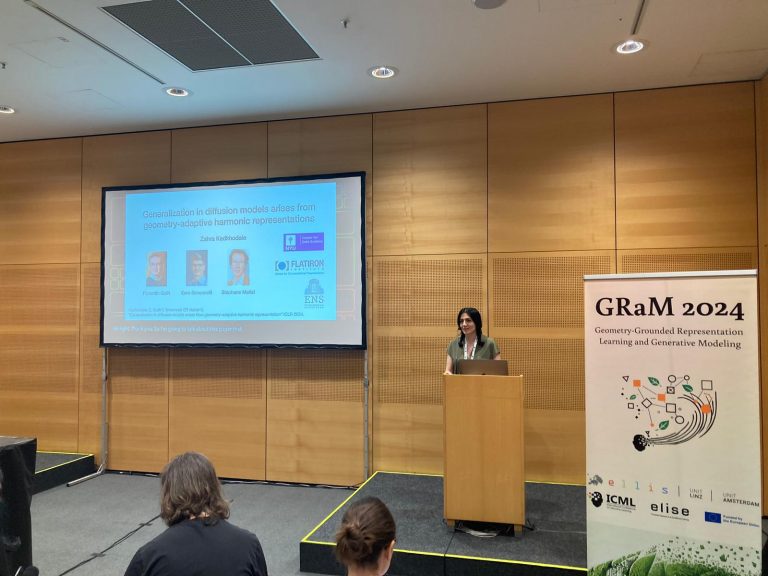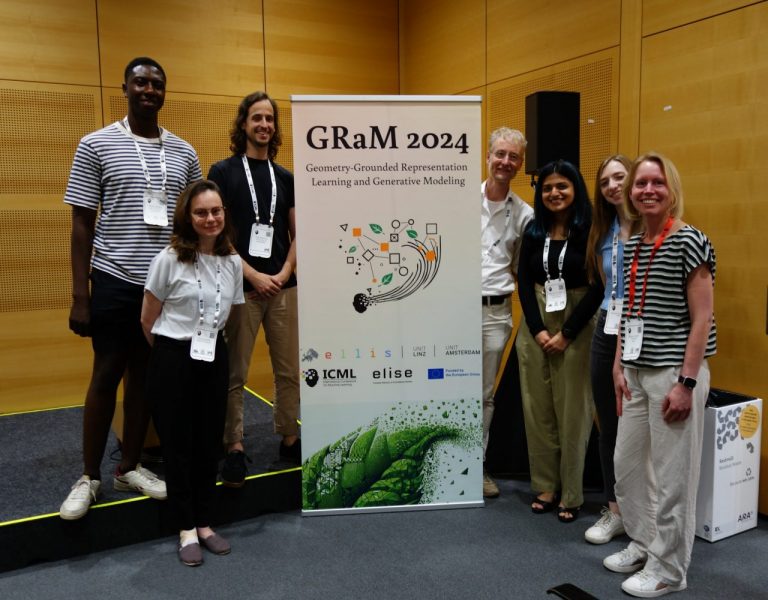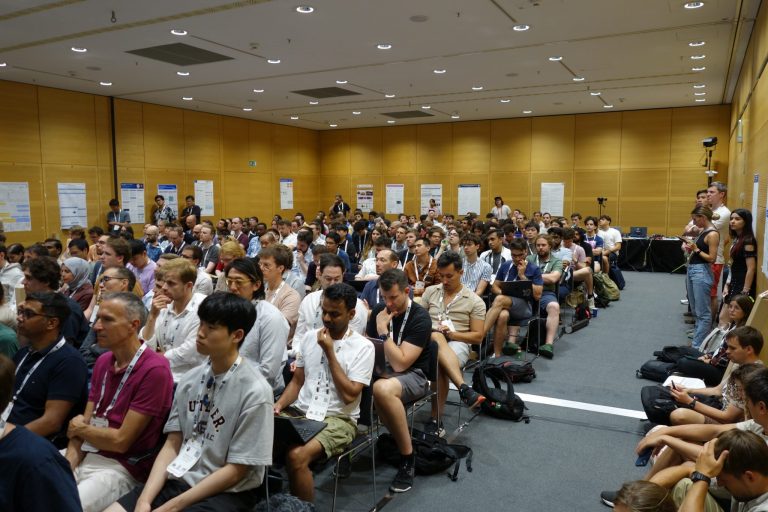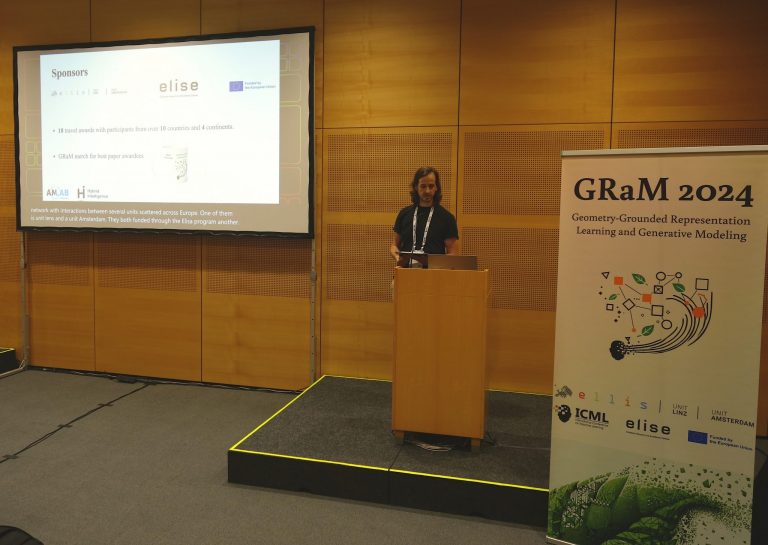
The following experts participated in the engaging panel discussion ‘Geometric deep learning and Generative modeling: Past and Future‘:
- Max Welling, Professor Machine Learning, University of Amsterdam;
- Zahra Kadkhodaie, Research Fellow at Center for Computational Neuroscience at the Flatiron Institute;
- Joey Bose, Post-Doctoral Fellow at the University of Oxford;
- Nina Miolane, Assistant Professor at the University of California;
The keynote talks featured two top-notch speakers:
- ‘The Platonic Representation Hypothesis’ delivered by Phillip Isola, The Class of 1948 Career Development associate professor in EECS at MIT;
- ‘Automatic Symmetry Discovery from Data’ by Rose Yu, Associate Professor at the Department of Computer Science and Engineering, University of California;
The workshop also accepted submissions that present theoretical research, methodologies, applications, insightful analysis, and even open problems, within the topics of Structure-preserving learning, Structure-inducing learning, Generative modeling and density estimation, and Grounding in theory.
The total number of submissions was 167, and the accepted submissions were 145 across 4 categories: full proceedings papers, extended abstract papers, blogpost/tutorials, and competition track. From the submissions, five contributed talks were selected by Area Chairs for works with high reviewer scores, novelty, and relevance to the workshop. From the shortlisted papers, two best papers were selected, meanwhile, the workshop acknowledged outstanding papers which almost met the criteria but are very important research and wanted to draw attention to them. The outstanding papers include ‘Transferability for Graph Convolutional Networks’, and ‘SE(3)-Hyena Operator for Scalable Equivariant Learning’.
